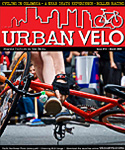US states could make it illegal to harass cyclists
Laws forbidding the harassment of cyclists could make it into the statute books if plans in Mississippi and Los Angeles come to fruition – following in the wake of similar legislation passed in other US states and cities in 2009.
Mississippi cyclists have been pushing for such bike-friendly legislation for three years, and next year they anticipate success at last. Meanwhile in Los Angeles, a similar law seems to be making steady progress ahead of a crucial vote in January 2010.
If passed, the Mississippi bill will give riders protection from harassment by motorists, but it will also set out responsibilities for cyclists, such as using hand signals, having the proper equipment (ie. lights) and not riding more than two abreast.
Rich Adair, former president of the state's Jackson Metro cycling club, said harassment was common. "We're competing for the same space, and cars see us as competition," he said. "We have a problem with cars swerving at us or having items thrown at us."
One criticism of the proposed law is that it would fail to define a legal minimum passing distance – something that is already in force elsewhere in the US (see below).
Los Angeles City Council's transportation committee has also been considering a 'bicyclist anti-harassment ordinance', which is likely to be voted on in January 2010. read more here












1 comments:
It's a nice idea and it's good to see that legislatures are finally looking into the problem, however this will more than likely be a law without any bite. Most cops don't seem to care about harassment of cyclists, otherwise the laws already on the books would seem to suffice. What the legislation should do is force law enforcement to get off their butts in a car and make them all have a stint as a bike cops. After a term on a bike, cops might have an appreciation for how dangerous the roads are for ordinary cyclists and actually care about road safety for all those that use the public streets.
Post a Comment